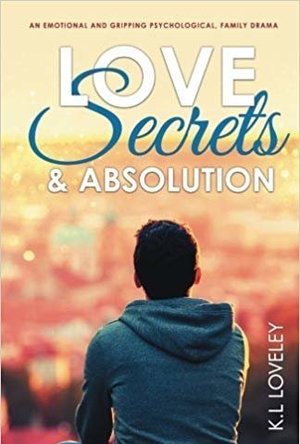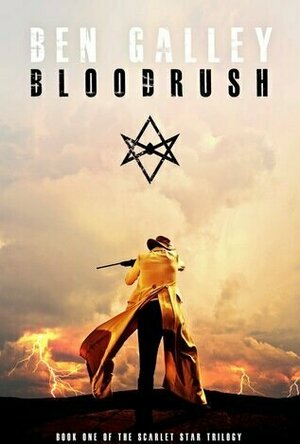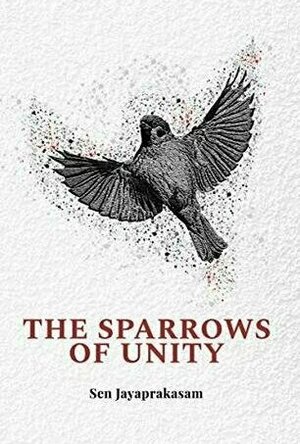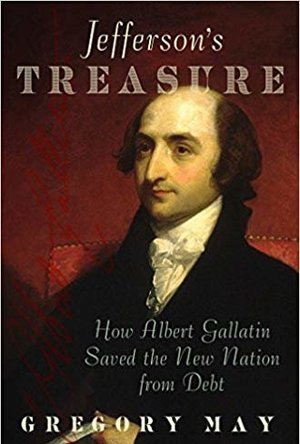
Theory Test Kit 2016 for Car Drivers
Reference
App
2016 Official DVSA Revision questions and Hazard Perception Test. Theory Test Kit for Car Drivers...

The Times & The Sunday Times: World News & Sports
News and Magazines & Newspapers
App
Enjoy quality journalism from The Times and The Sunday Times anywhere with one app, seven days a...

Topo GPS Germany - Bundesland
Navigation and Travel
App
Makes from your iPhone/iPad a complete GPS device. Includes the topographic map of one German state...
Sassy Brit (97 KP) rated Love, Secrets and Absolution in Books
Jun 6, 2019
^^ Told from alternative viewpoints, Love, Secrets and Absolution is an emotional story revolving around the lives of a couple, Grace and Paul, who are trying to come to terms with the stresses and strains of bringing up an autistic child. But what makes this story different is how it’s set at a time which coincides with the Nottingham miners strikes of the 80s, where pit closures and pay restraints led to unofficial strikes, job losses and violence. Harsh times to say the least. This added a new dimension to the story, and of course, more pressure for Paul, and ultimately the whole family. They were terrible times in Britain, a lot of families suffered because of it.
^^ Right from the beginning we see young Alfie is different to other children. The author, K. L.oveley, helps show us this, by what I thought was a highly unusual technique- giving baby and toddler versions of Alfie his own voice.
^^ I must admit at first I was thinking, this doesn’t sound like a baby. After all, very young babies are not able to communicate in such a coherent manner. However, as I read further, I saw how Alfie’s voice as a child — seeing things differently from his POV — really helped to provide a deeper look into his inner thoughts and feelings. A fresh and unique approach, which revealed his own perspective of how he didn’t fit in with other kids, even if he was unable to understand the “why” himself. Very clever. It certainly made things clearer for me and highlighted aspects of autism I may have missed otherwise.
^^ Taking the time-period into consideration, I found the portrayal of the teachers and the way they behaved cruelly and professionally towards Alfie and Grace shocking, yet realistic. Back in those days many professionals were not trained to spot differences and learning difficulties in the way they are today. To outsiders who didn’t understand what Alfie was going though and thinking, he did just look like a trouble maker. Nowadays we know better and there is an ever-growing awareness and understanding of the many different spectrums of autism.
^^ Alfie’s father, Paul, may not have won the best dad of the year award, but I felt he was a realistic representation of a man living and working in a very masculine environment, where men were largely regarded as the breadwinners of the household and job scarcity was a huge issue. He didn’t know how to handle Alfie, and in a way you can’t blame him for that. Not everyone is capable of being a really good parent, especially when their own life has turned upside down in a blink of an eye.
^^ There’s also a really good story line around a girl called Magenta, which I felt helped strengthen both Alfie and Grace’s bond. A lovely touch. As was Grace’s newfound strength and courage, which really made this story become more than just gloom and doom. Her steadfast devotion to her son is both amazing and commendable, and I enjoyed seeing how she turned her life around.
Overall: This thought-provoking book is as much about relationships, as it is autism. We see the hopes and dreams of a young family shattered by a lack of communication, misunderstandings and even betrayal. Yet, despite all the struggles and heartache this family go through, we discover the true power of love; how it can heal, comfort and carry us forward through the toughest of times. A heart-warming, memorable and most satisfying read.
Phil Leader (619 KP) rated Bloodrush (The Scarlet Star Trilogy #1) in Books
Nov 8, 2019
It is set in an alternate universe where much is familiar but some things are very different.
It is a western, mostly set in an frontier town in Wyoming with the usual cast of restless townspeople, lone prospectors and ruthless land owners.
It is a fantasy involving faeries and magick
Yet in Galley's capable hands these elements are moulded into a seamless and thrilling story. All the different aspects fit together neatly and consistently producing a terrific platform for the characters and plot.
The main character is 13 year old Tonmerion Hark (known as Merion), son of the Prime Lord (think Prime Minister) of an alternate version of Victorian Britain. When his father is murdered by assailants unknown he is sent to his last remaining relative - an aunt living in Wyoming. Travelling with him is is best friend, a faerie called Rhin who is a fugitive from the rest of the Fae. Desperate to get back to London to find his father's killer and rescue his inheritance, Merion is instead drawn into conflict and underhand dealings in the small town of Fell Falls where is aunt is the undertaker.
The alternate universe is particularly striking. Very nearly everything is familiar but with important differences. The biggest of these is clearly that creatures such as the Fae exist (even if few people have ever seen one) but other changes include the natives of America, the Shohari, not being quite human and a lot of clever differences in London that really make it clear what kind of world Merion inhabits. The magick is also well thought out with a lot of thought and imagination given to its mechanics and its implications.
Galley's writing is a joy. It is clear and concise yet conveys the scene to the reader with impressive ease. The hot sun and gritty sand of the desert feel very real indeed. The characters are very well described and a great deal of care has been taken to express them. These are not cardboard cliches, which would have been easy. Merion is the hero but at heart is still a 13 year old boy, a boy who is impetuous and complains how life is unfair. All through the book there is a subtle undercurrent of wry humour.
What this whole book reminded me of - both in the writing and in the almost but not quite like our world setting - was a slightly darker Terry Pratchett. That is not an exaggeration, This book really is up there with the very best Discworld books in terms of story and inventiveness. It is darker in tone than anything Pratchett would write and not quite as laugh out loud funny in places but it is damn close.
The story itself unfolds at a fast pace - which is good because there is a lot to get through with several plots running intertwined through the narrative and sparking off each other as they twist and turn through every reveal. The final showdown is suitably climactic and the prose as well as the magick crackles off the page in a breathless rush towards the final chapter.
I do like to balance my reviews with maybe some small point that counts against the book but I really can't think of one for Bloodrush. It simply is a magnificent piece of work. You may not have known you wanted a alternate reality fantasy western but once you have read this you will wonder where the next one is coming from.
Very very highly recommended and the 5 star rating was easy to give.
Rated: Strong language so not for the youngest of young adults
Night Reader Reviews (683 KP) rated The Sparrows of Unity in Books
Jan 9, 2020
The book opers with Lacy meeting her father who is Current in jail. She has believed her father to be a murderer her whole life and that her and her mother have been running from what he did. Now she is visiting him because of a message she found in her mother's journal that she read after her mother died in a car crash. Before he mysteriously disappears her father tells Lucy the truth about him and her mother.
Lucy ends up warking with Rit, Si, and Anna after they all see one of their teachers attacked and killed. The four teens all follow clues to race acros Britain while trying to stay one step ahead of the attackers, who are now trying to kidnap them. Along the journey they discover it is the Unity who are follawing them and trying to prevent them from reaching the other Sparrows. The four teens believe that once they get to the end of the Sparow's Path they will be safe from the Unity. Once they reach the end they can't help but to wonder if they just accidentally lead the Unity to the Sparrow's safe-house?
What I liked best was the basic idea of two groups who wanted to better the world. The idea that they were going to make the world better by eliminating racism, homophobia, and other foms of prejudice was interesting because this is not usually the goal of such groups in books. I liked that people were indirectly trying to make things better for everyone. It also helps that the puzzles where interesting and well thought out. What I didn't like was the fact that I kept questioning exactly how the Unity was planning on achieving their goal (at least I think it was the Unity). It talked about using fear and scare tactics but other than that it wasn't well explained. The ending was also very confusing with so many people either pretending or thinking that they were something they actually were not.
The target readers for this book would be teens and young adults. Anyone older may still enjoy this book for a quick read but it lacks the depth that I believe many adults would probably enjoy in a book. However, the following books in the series may make up for that and as a whole hold the attention of adults as well. I rate this book 2 out of 4. I found it to be a little dull frequently, with the teens just avoiding capture. Also it got very confusing towards the end and started to lose me. While the first chapter did get me hooked it did not last. After finishing the book I am still unsure as to the belonged to which group.
https;//www.facebook.com/nightreaderreviews

ColRegs: Rules of the Road for all Seagoing Sail and Power Vessels
Education and Navigation
App
Quick learning & revision tool, over 100 graphics, for all seafarers worldwide. "... a brilliant...

ColRegs: Nav Lights & Shapes for Boating and Sailing
Education and Navigation
App
Quick learning & revision tool, over 100 graphics, for all seafarers - this sailing, boating &...
Sassy Brit (97 KP) rated Jefferson's Treasure: How Albert Gallatin Saved the New Nation from Debt in Books
Jun 5, 2019
So who was this man that undid Alexander Hamilton’s fiscal system, rejecting it along with Madison and Jefferson? Because both Presidents did not understand the financial system, they depended on Gallatin to reform it. Gallatin arrived in America in 1790 from Geneva and rose up to become a trusted advisor of the Republicans. Six years before Jefferson was elected President, Gallatin’s Pennsylvania neighbors rebelled against the tax on whiskey. He supported them in principle but opposed the violence that ensued, burning the local tax collector’s house, robbing the mail, and marching on Pittsburgh.
The play “Hamilton” uses revisionist history. The real Hamilton believed in big government and wanted to continue funding federal deficits. He based his theories on the British who used the money to fund their large military conflicts, believing that the ability to borrow endless amounts of money would allow the new United States to become a great nation. Jefferson and Madison thought Hamilton’s system, straight from the British way, was tainted with tyranny. As May noted, “It made the people pay obnoxious taxes in order to fund interest payments on a mounting federal debt and the costs of an expensive military establishment. It shifted money from ordinary taxpayers to the relatively few rich men who held the government’s bonds. That was just the sort of thing that had led Americans to revolt against Britain in the first place.”
May believes, “The hip-hop immigrant hero of the Broadway musical is a myth. The musical might be a great work of art, but is relies on misconceptions of Hamilton. He was not an immigrant, but a migrant within the British Empire. Also, he was not a man of the people, as Gallatin was, but an elitist.”
While Hamilton committed to paying only the interest on the government’s debt, Gallatin committed the government to repaying fixed amounts of the principal each year. He also insisted that the government should never spend more than it earned except in times of war. By slashing federal expenses, Gallatin was able to get rid of the tax on whiskey and abolish the entire internal revenue service.
The Republicans, an agrarian society, distrusted these elitists where two-thirds of the government debt belonged to a few hundred very wealthy men residing mainly in Philadelphia, New York, and other mercantile cities. They saw Hamilton’s plan of collecting taxes from ordinary citizens as a way for a few rich men to become even wealthier. Implementing these excise taxes required government officials to inspect, quantify, and mark the items subject to tax.
The Hamilton system benefited the wealthy debt holders and spectators at the expense of the average taxpayer who had to pay the interest. The government would borrow more than the people could pay. Hamilton tried to hide how much money the government was actually spending and spiraled the debt higher and higher.
This was an important part of the British tax base, and “I wanted to show how unpopular it was. Hamilton and company were resented because they created a tax collection network that affected the lives of ordinary citizens. The excise tax is a form of internal taxation, while tariffs are a form of external taxation that fell on the well to do. Remember mostly the well to do bought imports. The Republicans once they came to power relied on import duties rather than excise taxes.”
May further explained, “When Jefferson and his administration came to power it was Gallatin who got rid of Hamilton’s deficit finance system and cut taxes. By the time he has left office he has repaid half the federal debt and set up a program for repaying the rest.”
Anyone who wants to understand the early economic systems of the Founding Fathers will enjoy this book. It shows how Gallatin, by killing Hamilton’s financial system, abolished internal revenue taxes in peacetime, slashed federal spending, and repaid half of the national debt.
Hazel (1853 KP) rated The Care and Management of Lies in Books
Dec 17, 2018
British author Jacqueline Winspear states in the letter from the author at the front of the book that the idea for this novel came from a second hand copy of a book titled <i>The Woman’s Book</i> by Florence B Jack (1911) containing an inscription revealing that it was presented as a gift to a woman on her wedding day in July 1914. The story within </i>The Care and Management of Lies</i> is Winspear’s imaginings about who that woman was and what her life was like.
The book focuses primarily on four characters, the main being Kezia Brissenden née Marchant who receives the gift <i>The Woman’s Book</i> from a close friend, Dorothy “Thea”, who so happens to be the older sister of her new husband, Tom. The book was not a particularly kind gift as it emphasized Kezia’s upbringing and who, due to her father being a reverend and employer of maids and cooks, had never produced her own meal in her life nor had any experience with running a household, let alone a farm – her new home.
Whilst Kezia determinedly throws herself into her new role, showing her love for Tom through the food she learns to cook, Thea, living in London, is drifting away from their friendship. With the possibility of war on the horizon, Thea joins a pacifist movement, which is somewhat ironic as she was once involved with the suffragettes. On the other hand, once war is declared, Tom decides to enlist in the army as does neighbour, Edmund Hawkes, a man who is rather envious of Tom and his lovely wife. The reader receives two different perspectives of the terrors of war from these characters, but then also another, surprisingly, from Thea who rejects pacifism and goes out to France to help in anyway she can. This leaves Kezia at home alone with the effects the war has on Britain.
The love between Kezia and Tom is emphasized through the letters they send each other. Both are lying about their situations by trying to convince the other that they are better off than they really are. The thing that keeps them both going are Kezia’s descriptions of her fictional meals that she prepares for Tom’s dinner, describing in great detail the preparation and taste of the food.
Each chapter begins with a quote from <i>The Woman’s Book</i> (and later <i>Infantry Training</i> and <i>Field Service Pocket Book</i>) that relate to the particular events occurring in the story at that time. This is a great way of underlining the significance of that wedding present to the storyline.
The narrative quickly changes from character to character which, although helping to keep the pace of the novel, can sometimes be a little confusing. It also made it difficult to get into the story at the beginning. Sometimes it took a lot of concentration to follow the text and those with minds that easily wander may constantly find themselves suddenly reading from a different point of view without having noticed the change over.
Winspear’s grandfather was a soldier in the trenches during the Great War and so it seems likely that some of the scenes may be based on his experiences. If that is the case then it can be believed that <i>The Care and Management of Lies</i> is as accurate as can be in terms of the war and life on the front lines. Winspear also does not attempt to gloss over any of the war horrors, therefore does not create the unlikely “and they all lived happily ever after” ending that other writers of war stories have done in the past.
Those interested in war themes may be particularly interested in this book, especially as this year (2014) is the anniversary of the Great War. <i>The Care and Management of Lies</i> is a piece of literature to add to the mountain of media coverage of the commemoration of the war.




